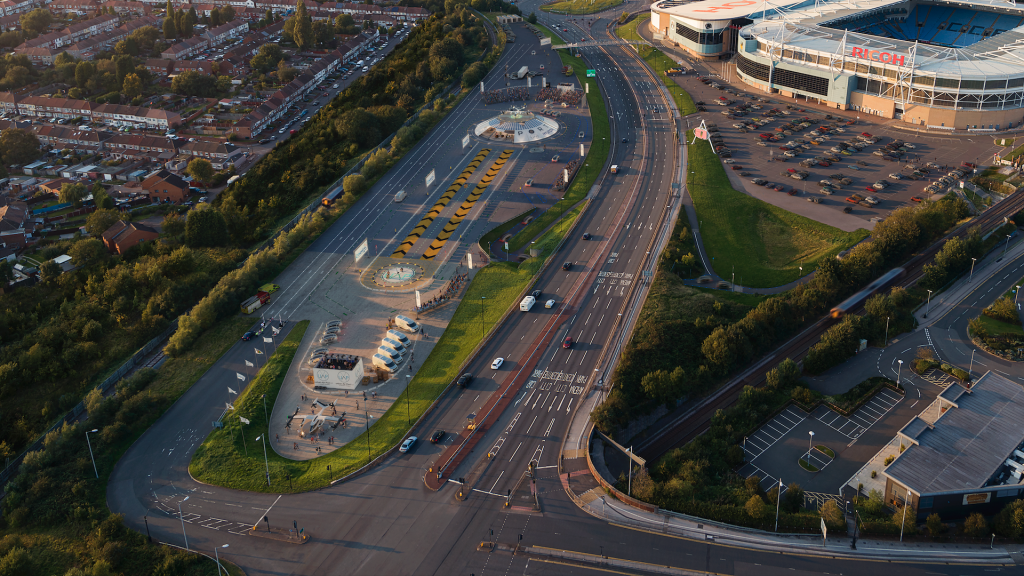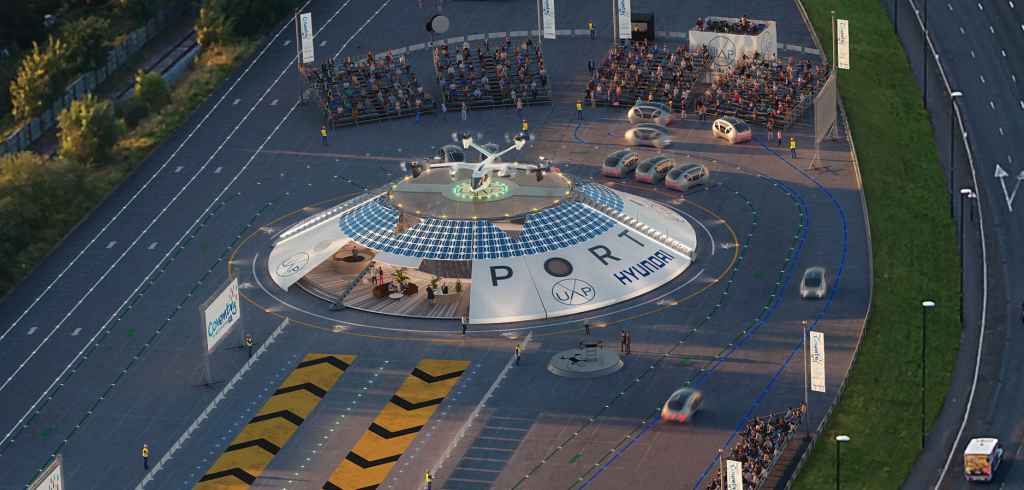Urban-Air Port has announced that it will open the world’s first airport for electric flying cars and autonomous delivery drones in Coventry, UK, later this year.
The announcement comes after the company was selected as a winner of the UK government’s Future Flight Challenge to develop aviation infrastructure and systems that enable the next generation of electric and autonomous air vehicles.
The Air-One transport hub is the world’s first fully operational ‘pop-up’ urban airport and charging hub for future electric vertical take-off and landing (eVTOL) aircraft, such as cargo drones and air taxis, according to the company.
Ricky Sandhu, founder and executive chairman of Urban-Air Port, said, “Cars need roads. Trains need rails. Planes need airports. eVTOLs will need urban airports. Over 100 years ago, the world’s first commercial flight took off, creating the modern connected world. Urban-Air Port will improve connectivity across our cities, boost productivity and help the UK to take the lead in a whole new clean global economy.”
The Air-One transport hub will showcase air taxi and delivery drone technology that will ultimately transport people and cargo across cities, and Coventry was chosen due to its location in the heart of the UK and its history as a hub for the automobile and aerospace industries.
The project is being backed by the Urban Air Mobility division of Hyundai Motor Group, which has chosen Urban-Air Port as its priority infrastructure partner to support the global growth of this new sector, which could be worth up to US$500bn in the near term according to NASA predictions.
Pamela Cohn, chief operating officer for Hyundai’s UAM division, said, “As we advance our eVTOL aircraft program, development of supporting infrastructure is imperative. Air-One is a unique project that is set to help lead the way in developing a robust, accessible and intermodal infrastructure network for future mobility. We are excited to be part of this partnership in the UK and look forward to working together to create community impact and opportunity through safe, affordable and human-centered mobility solutions.”
According to Urban-Air Port, the physical footprint of the Air-One transport hub is 60% smaller than a traditional heliport (the most comparable existing infrastructure) and sites can be installed in a matter of days using innovative modular construction methods. The ports emit net zero carbon emissions and can be operated completely off-grid, meaning they do not always have to rely on a suitable grid connection.
The company plans to develop more than 200 sites in the next five years to meet global demand. Cities across the UK and many more globally have already expressed an interest in installing an Urban-Air Port and the company says it is now in discussions with investors to support its rapid commercialization and global growth.



